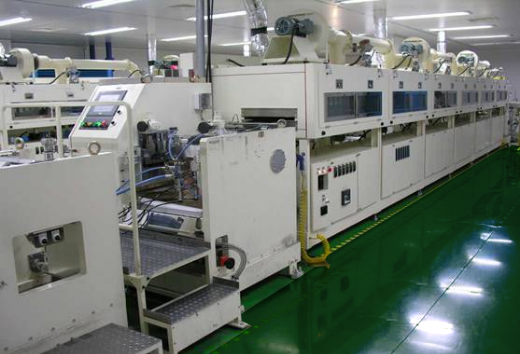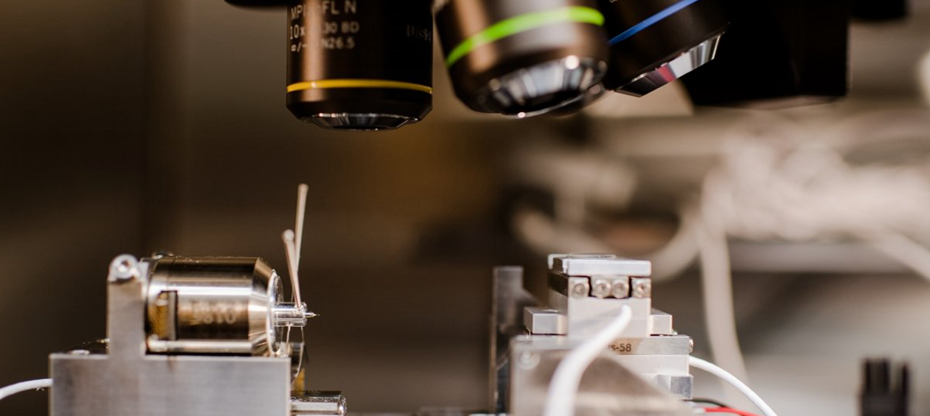ブログ
-
 LiFePO4 batteries have become increasingly popular in recent years due to their long lifespan and high performance. They are widely used in various applications, including electric vehicles, renewable energy systems, and portable electronics. However, how long can a LiFePO4 battery last? In this article, we will explore the lifespan of a LiFePO4 battery and factors that affect its longevity. Firstly, it is important to understand what determines the lifespan of a battery. The lifespan of a LiFePO4 battery is primarily determined by the number of charge and discharge cycles it undergoes. Each cycle involves charging the battery to its full capacity and then discharging it until it reaches a […]続きを読む
LiFePO4 batteries have become increasingly popular in recent years due to their long lifespan and high performance. They are widely used in various applications, including electric vehicles, renewable energy systems, and portable electronics. However, how long can a LiFePO4 battery last? In this article, we will explore the lifespan of a LiFePO4 battery and factors that affect its longevity. Firstly, it is important to understand what determines the lifespan of a battery. The lifespan of a LiFePO4 battery is primarily determined by the number of charge and discharge cycles it undergoes. Each cycle involves charging the battery to its full capacity and then discharging it until it reaches a […]続きを読む -
 Introduction Lithium batteries are rechargeable batteries that are commonly used in portable electronic devices and electric vehicles. They are popular because they have a high energy density, meaning they can store a large amount of energy in a small volume or weight. This makes them ideal for use in portable devices that require a long-lasting battery. In this article, we will discuss how lithium batteries work, their advantages and disadvantages, and their applications. How Lithium Batteries Work Lithium batteries work based on the movement of ions between the positive and negative electrodes. The positive electrode is typically made of lithium cobalt oxide or lithium iron phosphate, while […]続きを読む
Introduction Lithium batteries are rechargeable batteries that are commonly used in portable electronic devices and electric vehicles. They are popular because they have a high energy density, meaning they can store a large amount of energy in a small volume or weight. This makes them ideal for use in portable devices that require a long-lasting battery. In this article, we will discuss how lithium batteries work, their advantages and disadvantages, and their applications. How Lithium Batteries Work Lithium batteries work based on the movement of ions between the positive and negative electrodes. The positive electrode is typically made of lithium cobalt oxide or lithium iron phosphate, while […]続きを読む -
 Locomotives are the backbone of transportation for goods and people across long distances. These engines require a great deal of power to start up and run effectively, making the reliability of their power supply crucial to their operation. One crucial component of a locomotive\’s electrical system is the starter battery. In this article, we will explore the importance of starter batteries for locomotives and how they provide reliable energy to power up these massive engines. A starter battery is a type of lead-acid battery designed specifically for starting an engine. It provides a burst of power to the starter motor, which turns the engine over until it is running […]続きを読む
Locomotives are the backbone of transportation for goods and people across long distances. These engines require a great deal of power to start up and run effectively, making the reliability of their power supply crucial to their operation. One crucial component of a locomotive\’s electrical system is the starter battery. In this article, we will explore the importance of starter batteries for locomotives and how they provide reliable energy to power up these massive engines. A starter battery is a type of lead-acid battery designed specifically for starting an engine. It provides a burst of power to the starter motor, which turns the engine over until it is running […]続きを読む -
 LiFePO4 batteries are a popular choice for motorcycle batteries due to their various benefits. In this article, we will discuss the advantages of LiFePO4 motorcycle batteries. 1. Longer Lifespan One of the most significant benefits of LiFePO4 motorcycle batteries is their longer lifespan. These batteries can last up to ten times longer than other types of batteries, which means you won\’t need to replace them as often. They are designed to provide up to 2000 cycles, resulting in low maintenance costs and longer usage life. 2. Lightweight Another advantage of LiFePO4 motorcycle batteries is their lightweight design. They are much lighter than traditional lead-acid batteries, which […]続きを読む
LiFePO4 batteries are a popular choice for motorcycle batteries due to their various benefits. In this article, we will discuss the advantages of LiFePO4 motorcycle batteries. 1. Longer Lifespan One of the most significant benefits of LiFePO4 motorcycle batteries is their longer lifespan. These batteries can last up to ten times longer than other types of batteries, which means you won\’t need to replace them as often. They are designed to provide up to 2000 cycles, resulting in low maintenance costs and longer usage life. 2. Lightweight Another advantage of LiFePO4 motorcycle batteries is their lightweight design. They are much lighter than traditional lead-acid batteries, which […]続きを読む -
 Lithium Iron Phosphate (LiFePO4) batteries are a type of rechargeable battery that are known for their high energy density and long cycle life. They are commonly used in electric vehicles, energy storage systems and portable devices. One important factor that affects the performance of LiFePO4 batteries is temperature. Like all batteries, LiFePO4 batteries have a temperature range in which they can operate effectively. Outside of this range, the battery may suffer damage and its performance may be degraded. The recommended temperature range for LiFePO4 batteries is between -20°C and 60°C. This means that the battery can be safely discharged and charged within this temperature range without experiencing any […]続きを読む
Lithium Iron Phosphate (LiFePO4) batteries are a type of rechargeable battery that are known for their high energy density and long cycle life. They are commonly used in electric vehicles, energy storage systems and portable devices. One important factor that affects the performance of LiFePO4 batteries is temperature. Like all batteries, LiFePO4 batteries have a temperature range in which they can operate effectively. Outside of this range, the battery may suffer damage and its performance may be degraded. The recommended temperature range for LiFePO4 batteries is between -20°C and 60°C. This means that the battery can be safely discharged and charged within this temperature range without experiencing any […]続きを読む -
 The 48V LiFePO4 battery is one of the most advanced energy storage solutions available in the market. With its long-lasting energy capacity and superior performance, this battery has become increasingly popular for industrial, commercial, and residential applications. LiFePO4 batteries are made using advanced Lithium Iron Phosphate technology, which is known for its high energy density, low self-discharge rate, and long cycle life. These batteries have a nominal voltage of 48V and can provide power for a wide range of applications, including electric vehicles, renewable energy systems, backup power, and more. One of the primary advantages of the 48V LiFePO4 battery is its exceptional energy density. These batteries can […]続きを読む
The 48V LiFePO4 battery is one of the most advanced energy storage solutions available in the market. With its long-lasting energy capacity and superior performance, this battery has become increasingly popular for industrial, commercial, and residential applications. LiFePO4 batteries are made using advanced Lithium Iron Phosphate technology, which is known for its high energy density, low self-discharge rate, and long cycle life. These batteries have a nominal voltage of 48V and can provide power for a wide range of applications, including electric vehicles, renewable energy systems, backup power, and more. One of the primary advantages of the 48V LiFePO4 battery is its exceptional energy density. These batteries can […]続きを読む -
 The 48V LiFePO4 battery is a type of rechargeable battery that has gained popularity due to its long-lasting performance and reliability. LiFePO4 stands for Lithium Iron Phosphate, which is the chemical composition of the battery’s cathode material. This technology is becoming increasingly popular in various applications, including electric vehicles, solar energy storage, and backup power systems. In this article, we will explore the benefits of using a 48V LiFePO4 battery and its applications in modern-day life. One of the most significant advantages of the 48V LiFePO4 battery is its long cycle life. Unlike traditional lead-acid batteries, which have a limited number of charge-discharge cycles, LiFePO4 batteries can last up […]続きを読む
The 48V LiFePO4 battery is a type of rechargeable battery that has gained popularity due to its long-lasting performance and reliability. LiFePO4 stands for Lithium Iron Phosphate, which is the chemical composition of the battery’s cathode material. This technology is becoming increasingly popular in various applications, including electric vehicles, solar energy storage, and backup power systems. In this article, we will explore the benefits of using a 48V LiFePO4 battery and its applications in modern-day life. One of the most significant advantages of the 48V LiFePO4 battery is its long cycle life. Unlike traditional lead-acid batteries, which have a limited number of charge-discharge cycles, LiFePO4 batteries can last up […]続きを読む -
 Lithium iron phosphate (LiFePO4) motorcycle battery is one of the most reliable and efficient power sources available in the market today. This type of battery has several advantages over traditional lead-acid batteries, making it a popular choice among motorcycle owners. LiFePO4 motorcycle batteries have gained popularity due to their high energy density, long cycle life, and low self-discharge rate. In this article, we will discuss the benefits of using a LiFePO4 motorcycle battery. Firstly, the energy density of LiFePO4 batteries is much higher than traditional lead-acid batteries. This means that the same amount of energy can be stored in a smaller package, making it ideal for motorcycles where space […]続きを読む
Lithium iron phosphate (LiFePO4) motorcycle battery is one of the most reliable and efficient power sources available in the market today. This type of battery has several advantages over traditional lead-acid batteries, making it a popular choice among motorcycle owners. LiFePO4 motorcycle batteries have gained popularity due to their high energy density, long cycle life, and low self-discharge rate. In this article, we will discuss the benefits of using a LiFePO4 motorcycle battery. Firstly, the energy density of LiFePO4 batteries is much higher than traditional lead-acid batteries. This means that the same amount of energy can be stored in a smaller package, making it ideal for motorcycles where space […]続きを読む -
 Introduction Lithium Iron Phosphate (LiFePO4) batteries are a type of rechargeable battery that have gained popularity in recent years due to their superior characteristics compared to other types of batteries. LiFePO4 batteries are known for their long cycle life, high energy density, and safety features. In this article, we will discuss the characteristics and performance of LiFePO4 batteries. Battery Chemistry LiFePO4 batteries are composed of three main components: a lithium iron phosphate cathode, a graphite anode, and an electrolyte. The cathode is made up of lithium iron phosphate, which is a stable and non-toxic material. This makes LiFePO4 batteries safer than other types of lithium-ion batteries, such […]続きを読む
Introduction Lithium Iron Phosphate (LiFePO4) batteries are a type of rechargeable battery that have gained popularity in recent years due to their superior characteristics compared to other types of batteries. LiFePO4 batteries are known for their long cycle life, high energy density, and safety features. In this article, we will discuss the characteristics and performance of LiFePO4 batteries. Battery Chemistry LiFePO4 batteries are composed of three main components: a lithium iron phosphate cathode, a graphite anode, and an electrolyte. The cathode is made up of lithium iron phosphate, which is a stable and non-toxic material. This makes LiFePO4 batteries safer than other types of lithium-ion batteries, such […]続きを読む -
 3.2V LiFePO4 Battery: A Comprehensive Overview The 3.2V LiFePO4 battery, also known as the lithium iron phosphate battery, is a rechargeable battery that has gained widespread use in the energy storage industry due to its various advantages over other types of batteries. In this article, we will provide a comprehensive overview of the 3.2V LiFePO4 battery, including its composition, characteristics, applications, and benefits. Composition and Characteristics The 3.2V LiFePO4 battery consists of four main components: cathode, anode, separator, and electrolyte. The cathode is made up of lithium iron phosphate (LiFePO4), while the anode is typically made up of carbon. The separator is a thin layer that separates […]続きを読む
3.2V LiFePO4 Battery: A Comprehensive Overview The 3.2V LiFePO4 battery, also known as the lithium iron phosphate battery, is a rechargeable battery that has gained widespread use in the energy storage industry due to its various advantages over other types of batteries. In this article, we will provide a comprehensive overview of the 3.2V LiFePO4 battery, including its composition, characteristics, applications, and benefits. Composition and Characteristics The 3.2V LiFePO4 battery consists of four main components: cathode, anode, separator, and electrolyte. The cathode is made up of lithium iron phosphate (LiFePO4), while the anode is typically made up of carbon. The separator is a thin layer that separates […]続きを読む -
 As technology continues to advance, the need for reliable and efficient power sources has become more crucial. In recent years, the 12V LiFePO4 battery has gained popularity as a durable and efficient power source for various applications. In this article, we will explore what a 12V LiFePO4 battery is, its advantages over other battery types, and its uses. What is a 12V LiFePO4 battery? A 12V LiFePO4 battery is a type of lithium-ion battery that uses lithium iron phosphate as its cathode material. Compared to other lithium-ion batteries, LiFePO4 batteries have a longer lifespan, better thermal stability, and are less prone to explosion or fire. They also have […]続きを読む
As technology continues to advance, the need for reliable and efficient power sources has become more crucial. In recent years, the 12V LiFePO4 battery has gained popularity as a durable and efficient power source for various applications. In this article, we will explore what a 12V LiFePO4 battery is, its advantages over other battery types, and its uses. What is a 12V LiFePO4 battery? A 12V LiFePO4 battery is a type of lithium-ion battery that uses lithium iron phosphate as its cathode material. Compared to other lithium-ion batteries, LiFePO4 batteries have a longer lifespan, better thermal stability, and are less prone to explosion or fire. They also have […]続きを読む -
 As lithium-ion batteries become more prevalent in our daily lives, it\’s important to understand their key characteristics in order to make informed decisions about using and purchasing them. One type of lithium-ion battery that has gained popularity in recent years is the LifePO4 battery, which stands for Lithium Iron Phosphate. One of the key characteristics of a LifePO4 battery is its high energy density, meaning it can store a large amount of energy in a relatively small space. This makes it ideal for use in portable devices, such as smartphones and laptops, as well as electric vehicles and renewable energy systems. Another important characteristic of LifePO4 batteries is […]続きを読む
As lithium-ion batteries become more prevalent in our daily lives, it\’s important to understand their key characteristics in order to make informed decisions about using and purchasing them. One type of lithium-ion battery that has gained popularity in recent years is the LifePO4 battery, which stands for Lithium Iron Phosphate. One of the key characteristics of a LifePO4 battery is its high energy density, meaning it can store a large amount of energy in a relatively small space. This makes it ideal for use in portable devices, such as smartphones and laptops, as well as electric vehicles and renewable energy systems. Another important characteristic of LifePO4 batteries is […]続きを読む -
 Lithium iron phosphate (LiFePO4) is a type of rechargeable battery that falls under the category of lithium-ion batteries. Lithium-ion batteries are a broad term that includes several different types of batteries that use lithium ions to store and release energy. LiFePO4 batteries are known for their high energy density, long cycle life, and safety features. They are commonly used in electric vehicles, portable power tools, and solar power systems. LiFePO4 batteries have a nominal voltage of 3.2 volts per cell and a specific energy of around 90-120 Wh/kg. One of the biggest advantages of LiFePO4 batteries is their safety. Unlike other types of lithium-ion batteries, LiFePO4 batteries are […]続きを読む
Lithium iron phosphate (LiFePO4) is a type of rechargeable battery that falls under the category of lithium-ion batteries. Lithium-ion batteries are a broad term that includes several different types of batteries that use lithium ions to store and release energy. LiFePO4 batteries are known for their high energy density, long cycle life, and safety features. They are commonly used in electric vehicles, portable power tools, and solar power systems. LiFePO4 batteries have a nominal voltage of 3.2 volts per cell and a specific energy of around 90-120 Wh/kg. One of the biggest advantages of LiFePO4 batteries is their safety. Unlike other types of lithium-ion batteries, LiFePO4 batteries are […]続きを読む -
 As the world becomes increasingly reliant on technology, it is crucial to have reliable and efficient power sources. The 48V LiFePO4 battery is an innovative solution that has gained popularity in recent years due to its superior energy density and safety features. LiFePO4 batteries are made of lithium iron phosphate and are known for their high energy density, which means they can store more energy in a smaller space. They are also highly efficient, as they can charge and discharge at a faster rate than traditional lead-acid batteries. One of the biggest advantages of a 48V LiFePO4 battery is its long lifespan. These batteries can last up to […]続きを読む
As the world becomes increasingly reliant on technology, it is crucial to have reliable and efficient power sources. The 48V LiFePO4 battery is an innovative solution that has gained popularity in recent years due to its superior energy density and safety features. LiFePO4 batteries are made of lithium iron phosphate and are known for their high energy density, which means they can store more energy in a smaller space. They are also highly efficient, as they can charge and discharge at a faster rate than traditional lead-acid batteries. One of the biggest advantages of a 48V LiFePO4 battery is its long lifespan. These batteries can last up to […]続きを読む -
 Introduction Batteries play an essential role in today\’s world, powering everything from mobile phones to electric cars. Two types of batteries that have gained popularity in recent years are LiFePO4 and lithium-ion batteries. While both batteries are lithium-based, they differ in their composition and performance. In this article, we will compare LiFePO4 vs lithium-ion batteries and determine which one is the better option. Composition LiFePO4 batteries are composed of lithium iron phosphate as the cathode material, graphite as the anode material, and an electrolyte solution. On the other hand, lithium-ion batteries use lithium cobalt oxide, lithium manganese oxide, or lithium iron phosphate as the cathode material and […]続きを読む
Introduction Batteries play an essential role in today\’s world, powering everything from mobile phones to electric cars. Two types of batteries that have gained popularity in recent years are LiFePO4 and lithium-ion batteries. While both batteries are lithium-based, they differ in their composition and performance. In this article, we will compare LiFePO4 vs lithium-ion batteries and determine which one is the better option. Composition LiFePO4 batteries are composed of lithium iron phosphate as the cathode material, graphite as the anode material, and an electrolyte solution. On the other hand, lithium-ion batteries use lithium cobalt oxide, lithium manganese oxide, or lithium iron phosphate as the cathode material and […]続きを読む -
 Lithium Iron Phosphate (LiFePO4) is a type of rechargeable battery that offers a number of advantages over traditional lead-acid batteries. In recent years, LiFePO4 batteries have become increasingly popular in the world of motorcycles due to their high energy density, longer lifespan, and reduced weight. One of the key benefits of using a LiFePO4 battery in a motorcycle is the increased energy density. LiFePO4 batteries are able to store more energy per unit of weight than traditional lead-acid batteries, which means that they can provide the same or greater amount of power while taking up less space and weighing less. This can be particularly important for motorcycles, which often […]続きを読む
Lithium Iron Phosphate (LiFePO4) is a type of rechargeable battery that offers a number of advantages over traditional lead-acid batteries. In recent years, LiFePO4 batteries have become increasingly popular in the world of motorcycles due to their high energy density, longer lifespan, and reduced weight. One of the key benefits of using a LiFePO4 battery in a motorcycle is the increased energy density. LiFePO4 batteries are able to store more energy per unit of weight than traditional lead-acid batteries, which means that they can provide the same or greater amount of power while taking up less space and weighing less. This can be particularly important for motorcycles, which often […]続きを読む

